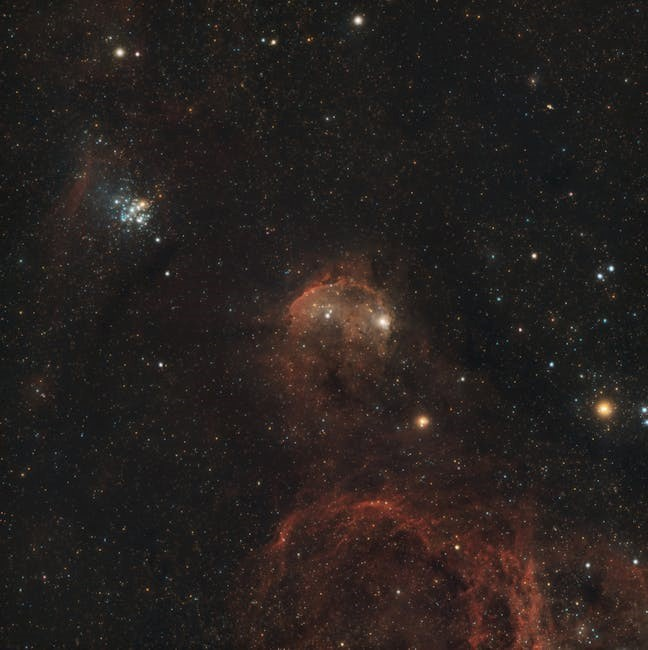hitchhiker’s guide to the galaxy chapter summary

Douglas Adams’ The Hitchhiker’s Guide to the Galaxy is a cult classic blending humor, science fiction, and philosophy. This article provides a concise exploration of the book’s key chapters, offering insights into its themes, characters, and cultural impact.
1.1 Overview of “The Hitchhiker’s Guide to the Galaxy”
The Hitchhiker’s Guide to the Galaxy is a cult science fiction series by Douglas Adams, blending humor, satire, and existential themes. It follows Arthur Dent, an ordinary man who escapes Earth’s destruction, and his alien friend Ford Prefect. Together, they embark on a chaotic journey through space, encountering strange worlds, eccentric characters, and philosophical dilemmas. The story mocks human-centric views of the universe while exploring complex ideas like the search for meaning and the absurdity of life. The book’s unique blend of wit, creativity, and intellectual depth has made it a global phenomenon, resonating with readers and inspiring various adaptations, including radio shows, TV series, and films. Its timeless appeal lies in its ability to entertain and provoke thought simultaneously.
1.2 Importance of Chapter Summaries
Chapter summaries are essential for understanding the intricate narrative of The Hitchhiker’s Guide to the Galaxy. Douglas Adams’ novel is renowned for its complexity, blending humor, philosophy, and science fiction. Summaries provide a clear breakdown of each chapter, helping readers navigate the book’s chaotic yet brilliant structure. They highlight key plot points, character development, and thematic elements, making the story more accessible. For fans and first-time readers alike, summaries offer a concise way to grasp the adventures of Arthur Dent and his companions. They also serve as a refresher for revisiting the story, ensuring that the humor, satire, and deeper meanings are fully appreciated. By condensing the narrative, summaries enhance the reading experience, allowing audiences to engage more deeply with Adams’ unique vision of the universe.

Background of the Book
The Hitchhiker’s Guide to the Galaxy began as a 1978 radio series by Douglas Adams, later adapted into a novel in 1979. It combines humor, science fiction, and philosophy, gaining cult status worldwide.
2.1 Author and Publication Details
Douglas Adams, a renowned British author, wrote The Hitchhiker’s Guide to the Galaxy, which originated as a radio series in 1978. The novel was first published in 1979 and became a bestseller. Adams’ unique blend of humor, science fiction, and philosophy captivated audiences globally. The book is part of a trilogy that expanded into five books, with Adams penning the first two before his death in 2001. Eoin Colfer later contributed a sixth book in 2009. The series has been adapted into TV shows, films, and stage plays, cementing its cultural significance. Adams’ witty storytelling and imaginative universe have made the book a timeless classic, resonating with readers across generations.
2.2 Genre and Style
The Hitchhiker’s Guide to the Galaxy is primarily classified as a science fiction comedy, blending absurd humor with philosophical musings. Douglas Adams’ writing style is distinctive for its wit, irony, and satirical commentary on human society, technology, and bureaucracy. The book’s narrative is episodic, with loosely connected adventures that explore diverse planets and civilizations. Adams’ use of parody and absurdity creates a unique reading experience, making the novel both entertaining and thought-provoking. His prose is concise, yet rich in detail, often juxtaposing mundane human concerns with the vast, unpredictable nature of the cosmos. This genre-defying approach has made the book a cult classic, appealing to fans of both humor and speculative fiction. Its style has influenced countless works in literature, film, and television, solidifying its place in pop culture history.
2.3 Popularity and Cultural Impact
The Hitchhiker’s Guide to the Galaxy has become a cultural phenomenon, transcending its origins as a radio series to influence various media forms. Its unique blend of humor and science fiction resonated globally, making it a beloved classic. The book’s popularity led to adaptations, including television series, stage plays, and a feature film, each contributing to its widespread recognition. Phrases like “Don’t panic!” and “The answer to life, the universe, and everything is 42” have entered popular culture. The novel’s impact on science fiction is profound, inspiring authors and creators to experiment with comedic and satirical elements. Its influence extends beyond literature, shaping music, comedy, and even technology, cementing its legacy as a groundbreaking work. The book’s enduring appeal lies in its ability to make complex ideas accessible and entertaining, ensuring its relevance across generations.

Main Characters
Arthur Dent, Ford Prefect, Marvin, Zaphod Beeblebrox, and Trillian form the core cast, each bringing unique perspectives and humor to the story’s intergalactic adventures and philosophical musings.
3.1 Arthur Dent
Arthur Dent is the unwitting protagonist of The Hitchhiker’s Guide to the Galaxy, an ordinary man thrust into extraordinary circumstances. He begins the story as a seemingly insignificant resident of Earth, facing the demolition of his house to make way for a bypass. Arthur’s life takes a dramatic turn when his friend Ford Prefect reveals himself as an alien and rescues him moments before Earth’s destruction. Throughout the series, Arthur’s relatable humanity contrasts with the absurdity of the universe, making him a sympathetic and humorous figure. His journey explores themes of survival, adaptation, and the search for meaning in an indifferent cosmos. Arthur’s character serves as the audience’s surrogate, navigating the bizarre events with a mix of frustration, curiosity, and resilience.
3.2 Ford Prefect
Ford Prefect is a pivotal character in The Hitchhiker’s Guide to the Galaxy, serving as an alien researcher for the titular guidebook. Originally from Betelgeuse, Ford is Arthur Dent’s friend, who unexpectedly rescues him from Earth’s destruction. His calm and resourceful nature contrasts with Arthur’s panic, showcasing his adaptability. Ford’s role as a guide researcher highlights his knowledge of the galaxy, aiding the duo in navigating cosmic challenges. His detached demeanor often leads to humorous interactions with Arthur, emphasizing his alien perspective. Despite his quirks, Ford’s loyalty and ingenuity make him a crucial figure in their interstellar adventures, blending humor and functionality seamlessly.
3.3 Marvin the Paranoid Android
Marvin, the Paranoid Android, is a melancholic yet brilliant character in The Hitchhiker’s Guide to the Galaxy. Created by the advanced Magrathean civilization, Marvin possesses vast intelligence but is perpetually plagued by depression. His pessimistic outlook, often expressed through witty remarks, adds a layer of dark humor to the story. Marvin’s interactions with other characters, particularly Arthur and Ford, highlight his existential despair. Despite his negativity, Marvin occasionally demonstrates loyalty and resourcefulness, aiding the group in critical situations. His presence underscores themes of existentialism and the futility of seeking meaning in an indifferent universe, making him a memorable and relatable figure in the narrative.
3.4 Zaphod Beeblebrox
Zaphod Beeblebrox, the charismatic and eccentric two-headed president of the galaxy, is a central character in The Hitchhiker’s Guide to the Galaxy; His dual heads symbolize his conflicting personalities: one head for leadership and the other for indulgence. Known for his recklessness and charm, Zaphod often prioritizes adventure over responsibility. He steals the spaceship Heart of Gold, kickstarting the story’s intergalactic journey. Despite his narcissism, Zaphod’s instincts frequently aid the group in escaping perilous situations. His relationship with Trillian, the human woman he whisked away from Earth, adds depth to his character. Zaphod’s antics and decisions drive much of the plot, showcasing his blend of audacity and hidden wisdom, making him a pivotal and memorable figure in the story.
3.5 Trillian
Trillian, a brilliant and resourceful human woman, is another key character in The Hitchhiker’s Guide to the Galaxy. Originally from Earth, she was rescued by Zaphod Beeblebrox just before the planet’s destruction. Trillian’s intelligence and calm demeanor often contrast with the chaos around her, making her a stabilizing force in the group. Despite her strong will, she struggles with feelings of loneliness and displacement, having been torn from her home. Her relationship with Zaphod is complex, marked by both affection and frustration. Trillian’s adaptability and sharp wit help the crew navigate various challenges, showcasing her resilience and strength. Her character adds a human touch to the story, balancing the absurdity of the universe with relatable emotions and practicality.

Chapter Summaries
This section provides a concise overview of each chapter in The Hitchhiker’s Guide to the Galaxy, highlighting key events, character developments, and thematic elements that drive the story forward.
4.1 Chapter 1: The Destruction of Earth
Chapter 1 introduces Arthur Dent, an ordinary man whose life is disrupted when his house is demolished to make way for a bypass. His friend Ford Prefect, an alien researcher, reveals that Earth is about to be destroyed to construct a hyperspace bypass. Ford rescues Arthur, and they escape Earth’s destruction aboard a passing spaceship. This chapter sets the tone for the series, blending humor with existential themes. It highlights the absurdity of bureaucratic decisions and the fragility of human existence. The destruction of Earth marks the beginning of Arthur’s intergalactic journey, showcasing Douglas Adams’ unique blend of satire and science fiction. The chapter also introduces the iconic Hitchhiker’s Guide to the Galaxy, a resource for navigating the cosmos.
4.2 Chapter 2: The Escape from Earth
Chapter 2 details Arthur Dent’s chaotic escape from Earth’s destruction. Ford Prefect, revealing himself as an alien, rescues Arthur by hitchhiking onto a passing Vogon constructor ship. The chapter explores the absurdity of intergalactic bureaucracy and the indifference of the universe. Ford explains Earth’s demolition to make way for a hyperspace bypass, showcasing Douglas Adams’ satirical take on human insignificance. Arthur’s disbelief and Ford’s nonchalance highlight the comedic tone. The chapter introduces the Vogons, bizarre alien beings, and their dreadful poetry, further emphasizing the surreal nature of the story. This escape marks the beginning of Arthur’s journey through the galaxy, setting the stage for encounters with eccentric characters and worlds. The chapter blends humor with existential themes, establishing the book’s unique voice and style.
4.3 Chapter 3: The Vogon Poetry
Chapter 3 delves into the bizarre world of Vogon poetry, a form of torture inflicted upon Arthur Dent and Ford Prefect. After being captured by the Vogons, the duo is forced to endure the excruciatingly bad poetry of the Vogon captain. The chapter highlights Douglas Adams’ comedic genius, blending absurdity with horror. The Vogons’ grotesque appearance and their pride in their dreadful poetry underscore the chapter’s surreal tone. Arthur and Ford’s reactions to the poetry—ranging from disgust to near-death experiences—add to the humor. This chapter also introduces the Hitchhiker’s Guide to the Galaxy’s infamous entry on Vogon poetry, describing it as the third worst in the universe. The scene serves as a satirical commentary on the subjective nature of art and the universe’s indifference to human sensibilities. The chapter’s dark humor and eccentricity set the tone for the rest of the book.
4.4 Chapter 4: The Heart of Gold
Chapter 4 introduces the starship Heart of Gold, stolen by Zaphod Beeblebrox, the two-headed president of the galaxy. The ship, equipped with the revolutionary Infinite Improbability Drive, is crewed by a paranoid android, Marvin, and an overly cheerful computer, Eddie. Arthur Dent, Ford Prefect, and Trillian, the human woman who joined Zaphod, board the ship, marking the start of their intergalactic journey. The chapter showcases the absurdity of Zaphod’s antics and the ship’s advanced technology. The Heart of Gold becomes the central setting for the group’s adventures, symbolizing both chaos and ingenuity; Its theft sets the stage for encounters with Vogons, Magrathea, and the supercomputer Deep Thought, driving the story’s exploration of existence and the universe.
4.5 Chapter 5: Magrathea
Chapter 5 delves into the mysterious planet Magrathea, a legendary world where planets are custom-designed for the ultra-wealthy. The crew of the Heart of Gold arrives on Magrathea, seeking answers about the supercomputer Deep Thought. The planet is revealed as the birthplace of Earth, which was created as a giant computer to find the “Answer to the Ultimate Question of Life, the Universe, and Everything.” Arthur, Ford, Trillian, and Zaphod encounter the Magratheans, ancient beings who construct planets. The chapter explores themes of existentialism and the search for meaning, as the characters confront the magnitude of Deep Thought’s 7.5-million-year computation. The revelation that Earth was a giant computer adds depth to the story, highlighting humanity’s place in the cosmos. This chapter is a pivotal moment in the narrative, blending humor with profound philosophical questions.
4.6 Chapter 6: The Supercomputer Deep Thought
Chapter 6 introduces the supercomputer Deep Thought, a colossal machine designed to calculate the “Answer to the Ultimate Question of Life, the Universe, and Everything.” The crew of the Heart of Gold arrives on Magrathea, where Deep Thought is housed, and learns that it has spent 7.5 million years computing the answer. When the answer, “42,” is finally revealed, the characters are left perplexed, as it lacks apparent meaning. This chapter explores themes of existentialism and the futility of seeking simple answers to complex questions. The humor and irony of the situation are heightened by the absurdity of the answer and the characters’ reactions. Deep Thought’s revelation becomes a pivotal moment, emphasizing the book’s satirical take on human endeavors to find ultimate truths.

4.7 Chapter 7: The Ultimate Answer
Chapter 7 delves into the revelation of the “Ultimate Answer to Life, the Universe, and Everything,” which Deep Thought finally computes as “42.” The characters are baffled, as the answer lacks context or meaning. Zaphod, Trillian, Marvin, and Slartibartfast grapple with the absurdity, while Arthur and Ford reflect on the futility of their journey. The chapter underscores the theme of existentialism, questioning the purpose of seeking grand answers. Adams’ humor shines through the absurdity of the situation, highlighting human beings’ tendency to seek simplistic solutions to complex questions. The revelation of “42” becomes a metaphor for the meaninglessness of life without context, reinforcing the book’s satirical take on human endeavors and the search for ultimate truths.

Themes and Motifs
The Hitchhiker’s Guide to the Galaxy explores satire, existentialism, and science fiction, blending humor with philosophical questions about life’s meaning, highlighting humanity’s absurdity and the universe’s indifference.

5.1 Satire and Social Commentary
Douglas Adams masterfully employs satire to critique human society, politics, and bureaucracy in The Hitchhiker’s Guide to the Galaxy. The demolition of Earth for a hyperspace bypass mocks humanity’s self-importance, while the Vogon’s rigid, soulless bureaucracy reflects societal red tape. Adams’ humor highlights absurdities, like the destruction of Earth being treated as a minor inconvenience, mirroring real-world indifference to environmental or existential threats. His portrayal of aliens as equally flawed and illogical as humans underscores the universality of imperfection. The book’s satire extends to science fiction tropes, challenging readers to question their assumptions about progress and authority. By blending comedy with sharp commentary, Adams creates a narrative that entertains while prompting reflection on humanity’s place in the cosmos.
5.2 Existentialism and Philosophy
The Hitchhiker’s Guide to the Galaxy delves into existential themes, questioning life’s meaning and the universe’s purpose. The supercomputer Deep Thought’s revelation that the “Answer to the Ultimate Question of Life, the Universe, and Everything” is 42 highlights the absurdity of seeking simple solutions to complex existential queries. Arthur Dent’s journey symbolizes humanity’s struggle to find purpose in an indifferent cosmos. Marvin, the Paranoid Android, embodies existential despair, while Zaphod Beeblebrox’s carefree nihilism contrasts with Arthur’s anxiety. Adams uses humor to explore philosophical concepts, suggesting that the search for meaning may be futile, yet inherently human. The narrative encourages readers to embrace uncertainty and find personal significance amidst the vast, unpredictable universe.
5.3 Science Fiction Elements
The Hitchhiker’s Guide to the Galaxy is a cornerstone of science fiction, blending imaginative worlds and advanced technologies with satirical commentary. The novel introduces iconic sci-fi concepts like the Infinite Improbability Drive, which enables faster-than-light travel, and the Heart of Gold, a spaceship powered by a yellow bulldozer. Advanced alien civilizations, such as the Vogons and Magratheans, showcase Adams’ creativity in crafting diverse extraterrestrial life. The story also explores futuristic technologies like the Total Perspective Vortex, a device that reveals the universe’s true scale, and Deep Thought, a supercomputer designed to find the “Answer to the Ultimate Question of Life, the Universe, and Everything.” These elements, combined with interstellar travel and cosmic phenomena, make the book a quintessential sci-fi adventure, while its humor and satire critique the genre’s conventions and humanity’s place in the cosmos.
5.4 Humor and Irony

Douglas Adams masterfully infuses The Hitchhiker’s Guide to the Galaxy with humor and irony, creating a unique narrative voice that mocks societal norms and the absurdity of existence. The novel’s wit is evident in its satirical portrayal of bureaucratic red tape, as seen with the Vogons and their obsession with paperwork. Irony abounds in the contrast between the Earth’s destruction for a hyperspace bypass and the trivial concerns of its inhabitants. Adams also uses absurdity, such as the supercomputer Deep Thought taking 7.5 million years to find the “Answer to Life, the Universe, and Everything,” only for it to be the meaningless number 42. Marvin, the paranoid android, adds dark humor with his existential despair, highlighting the futility of seeking purpose in an indifferent universe. This blend of irony and absurdity makes the book both entertaining and thought-provoking.

Legacy and Impact
The Hitchhiker’s Guide to the Galaxy has become a cultural icon, inspiring adaptations across media, and shaping science fiction and comedy with its enduring appeal, reflecting human curiosity about the cosmos and life’s meaning.
6.1 Cultural Significance
The Hitchhiker’s Guide to the Galaxy has left an indelible mark on popular culture, transcending literature to influence TV, radio, and film. Its unique blend of humor, science fiction, and philosophy resonates universally, making it a timeless classic. The book’s clever critique of human society and existential themes has sparked widespread discussion, while its memorable characters, like Marvin the Paranoid Android, have become cultural icons. The Heart of Gold spaceship and the supercomputer Deep Thought symbolize humanity’s fascination with technology and the cosmos. Adams’ work has inspired countless adaptations, solidifying its place in modern culture. Its influence extends beyond entertainment, offering insights into life’s complexities, making it a cherished read for generations of fans worldwide.
6.2 Adaptations and Spin-offs
The Hitchhiker’s Guide to the Galaxy has expanded beyond its literary roots into various adaptations, including radio dramas, TV series, and films. The 1978 radio broadcast introduced the story to a broader audience, while the 1981 TV series brought its vibrant visuals to life. In 2005, a major motion picture adaptation starring Martin Freeman as Arthur Dent further popularized the franchise. Additionally, stage plays, comic books, and video games have been created, ensuring the story’s enduring presence in multiple mediums. These adaptations have not only preserved the original’s humor and wit but also introduced new generations to Douglas Adams’ imaginative universe, cementing the book’s legacy as a multifaceted cultural phenomenon.
The Hitchhiker’s Guide to the Galaxy remains a timeless blend of humor, philosophy, and science fiction, resonating with readers and inspiring new adaptations, ensuring its enduring relevance.
7.1 Final Thoughts on the Book
Douglas Adams’ The Hitchhiker’s Guide to the Galaxy is a masterful blend of wit, satire, and existential inquiry. Its unique narrative voice and quirky characters, like Arthur Dent and Marvin, captivate readers. The book’s exploration of life’s meaning, encapsulated in the “Ultimate Answer,” resonates deeply. Adams’ ability to balance humor with profound philosophical questions makes the novel both entertaining and thought-provoking. Its enduring popularity across generations highlights its universal appeal. The story’s themes of resilience, friendship, and the absurdity of existence continue to inspire new adaptations and fans. Ultimately, it’s a celebration of creativity and the boundless possibilities of science fiction, leaving readers with a lasting appreciation for Adams’ genius.

7.2 Relevance in Modern Times
The Hitchhiker’s Guide to the Galaxy remains remarkably relevant in today’s world, offering timeless commentary on technology, society, and human nature. Its exploration of existential themes, such as the meaning of life and the universe, resonates with contemporary audiences grappling with similar questions. The book’s satire on bureaucracy and environmental destruction mirrors modern concerns about climate change and governmental inefficiency. Additionally, its portrayal of technology—like the supercomputer Deep Thought—parallels our reliance on AI and data-driven decision-making. Adams’ humor and absurdity provide a coping mechanism for life’s uncertainties, making the novel a comforting yet thought-provoking read. Its blend of wit and philosophy ensures its appeal endures, reminding us to embrace curiosity and resilience in an ever-changing world.